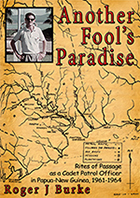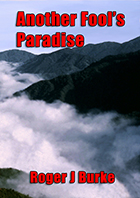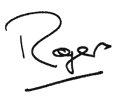READ ALL ABOUT IT!

NOW RELEASED
... after years in production!
For all readers of English literary fiction!
Get it at Google Play t'day ... cost of a black coffee, is all.
NOVEL WORDS
... on the loose!
Catch it at The App Store also.
Get The Word Out When You Need It ...
Eliminate Confusion About Words
That Sound The Same!
From research of dictionaries,
I've found that there is no consistent definition for 'homonym' or 'homophone'.
Some maintain that homonyms are words spelt the same but with different meanings; others state that homonyms are words that sound the same but have different meanings. And, a similar state of confusion exists with the definition of homophone
(Click here for a fuller discussion on the whole topic). So, there is some room for doubt and debate concerning some words that may not be regarded as valid homonyms or homophones.
For example some people, perhaps in England or Australia, would disagree that DO, DUE and DEW sound the same; others in USA or Canada, however, would have no problem.
The trio of NEW, KNEW and GNU would also present some raised eyebrows in some circles; so also the pair, AUNT/ANT.
To accommodate this thorny issue, I felt that it would be better to include such word pairs, (or triplets etc) rather than exclude them,
simply because dictionaries allowed differing pronunciations.
What are definitely not included, however, are
homographs
- words spelt the same but sounding different.
Concerning homographs, I will risk confusing you by saying there are some exceptions in the database e.g.
READ (RED)
and
READ (REED)!
Thankfully, there are
very
few of those.
So, Let's Take A More Detailed Look:
There are two sections to
Roger’s Reference:
- A list of Commonly Confused Words and
- the Homonym/Homophone Dictionary.
The first section caters for those who often confuse certain words, abbreviations and combination words, with others. Such words sound alike, but not the same;
so they are not homophones, in the strict sense of the word.
For example, some may confuse "WHERE" and "WE'RE", the second being a shortened version of "WE ARE". Many people are continually stopped by "ITS" and "IT'S". And, of course, "AFFECT" and "EFFECT", and similar words, are continual problems for many.
Where appropriate, this section contains some homophones that are also shown in the Dictionary. For example, "HE'LL" (short for "HE WILL/SHALL") can be confused with "HEEL" and "HEAL"; so, all three appear in this list, as do selected others.
The second section -
The Dictionary of Homonyms and Homophones -
details all words in the database, with their meanings and cross-referenced to all other words that sound the same.
Each word in the database is listed with at least one conceptually distinct meaning.
If a word has
more than one conceptually different meaning, each different meaning is listed. Hence, each homonym in the database has at least two meanings listed, but could have three or more (
SET, for example, has 16 entirely different meanings)!
Similarly, many homophones have more than one meaning (a homophone may also be a homonym with more than one distinct meaning). Just as a general point of interest, a large percentage of words in the database have more than three different meanings!
To make things clearer,
let's open a new browser window and look at some sample pages (PDF).
You'll need Acrobat Reader to see the sample. If you haven't got it yet
download it from this link now. It's FREE! Then come back to this page and open up the above sample.
The words are in alphabetical order (naturally), and arranged in two broad columns thus:
-
First, you'll see the word, in bold type.
-
On the same line, you will see any applicable homophones for that word.
-
Underneath that, there is each meaning for that word. There could be many meanings listed.
Note that I do not include any contractions such as "YOU’RE" (abbreviation of "YOU ARE"), or any other similar abbreviations for other words (e.g. "WHERE'S", "YOU’LL", "WE’LL" and such like). As noted above, such confusions are shown separately within the list of
Commonly Confused Words.
Where else will you get such a comprehesive, specialized dictionary?

Well, just click on down to get your copy of
Roger’s Reference now.
DRUM
You know the usual meaning(s) - now rest your mouse on it to find out another, not so common, meaning!
Dreams of adventure become reality when, in 1961, nineteen-year-old Roger Burke gets a job in New Guinea as a Cadet Patrol Officer.
So ... come with Roger as he tackles the clash of cultures; the harshness and humor of colonial administration; patrolling in country; earthquakes, tropical diseases and other nasties; investigating murders and suicides; and just missing death by a spear in the gut....
Read a free sample from the ebook and order a full copy here for only $2.99.
February 1st, 2015
Happily, I can now announce the perfect bound, paperback edition of Another Fool's Paradise is now for sale at Amazon.com, Amazon.co.uk and CreateSpace.com:Complete with forty plus photos of places visited and patrolled during my time in New Britain, you can order a copy - at $14.99 - by clicking the above image.
AD HOC....
2022Coming Soon To This Space: Art Australia Online
Twitter: @mayapan1942
Here's the novel app about challenging words used in English literary fiction:

...for all students and readers of English literary fiction.
Get it at Google Play now! And, also now at The App Store.





